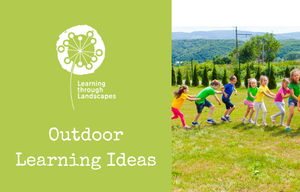
Playday
Taking place on the first Wednesday of August.
Celebrating play and raising awareness about its importance for children's development.
About the event
Playday is a day to highlight and celebrate the importance of play in children’s lives, particularly in education. In the late 1980’s playworkers Mick Conway, Paul Bonel and Kim Holdaway held a meeting in London to discuss what to do about cuts to children’s play centres and adventure playgrounds. From there Playday was born, going national in 1991, as a way to raise awareness about the importance of children’s play areas and facilitating play. The day now has over 850 events around the UK from street parties to woodland adventures.
How to approach it
This can be a day where you encourage a range of play activities, but also where you encourage students themselves to think about how play might be beneficial. Often, play is something that is clearly separated from ‘work’ or ‘study’. This could be a good opportunity to surprise children by asking them: what can we learn during play? Some obvious starting points could be playful activities within the classroom, such as learning history through reenactment or maths through a counters game. Next, steer discussion around what can be learned with freer kinds of play such as one without adults involved. Show students that this kind of play can help them practice interpersonal relationships, it can help them explore their feelings and importantly, it can develop their creative abilities.
In combination with this, facilitate a range of play activities. The options are limitless here. Aim to showcase different kinds of play moving from the more structured kinds with teacher’s involved to the freer kinds that allows students to be imaginative. You could aim here to weave in themes of cultural sensitivity, social justice or sustainability. For example, research playground games from other countries children may not have played, incorporate nature into your play or structure play around a theme such as fairness. Alternatively, you could engage your students with play that encourages them to imagine and act out a more sustainable, just world. Learning through Landscapes offers an inspiring list of play activities that touch on sustainability, maths and many more subjects.
Conversation starter
What does ‘play’ mean to you? Is it about running around in the playground? Is it having fun with your favourite toy? What about playing a video game? All of these things count as play, but did you know that play is more than having fun- it’s really important too. Even when we aren't in the classroom we’re learning all the time and this includes when we play. When we play we learn how to interact with one another, how to practise a skill and how to imagine fantastical worlds. Think carefully about your favourite way to have fun. Can you think of something you have learnt from it?


